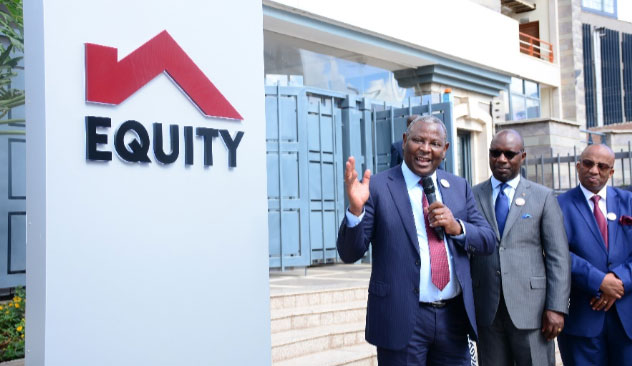
Equity Group Holdings, a leading East African financial institution, has announced a Sh3.9 billion ($30 Million) capital injection into its Tanzanian and Ugandan subsidiaries. This move underscores its commitment to regional operations, financial stability, and economic growth. The infusion aims to address rapid asset growth, which has outpaced profit generation. By boosting capital, Equity ensures strong capital adequacy ratios, expands lending, and enhances financial inclusion.
Background: Equity Group Holdings’ Expansion in East Africa
Equity Group has become a financial powerhouse in East Africa. It operates in Kenya, Uganda, Tanzania, Rwanda, South Sudan, and the Democratic Republic of Congo (DRC). The bank focuses on financial inclusion and digital transformation, making banking more accessible.
Under CEO Dr. James Mwangi’s leadership, Equity pursues aggressive expansion. Through acquisitions and organic growth, it has cemented its market presence.
Why the Capital Injection?
1. Strengthening Capital Adequacy Ratios
Both subsidiaries have grown rapidly, requiring more capital to support operations and comply with regulations. The Sh4 billion injection ensures they remain well-capitalized and resilient.
2. Addressing Profitability Challenges in Tanzania
Equity Bank Tanzania has struggled with non-performing loans (NPLs). However, it is now improving. The $20 million (Sh2.58 billion) boost will expand its loan book, improve liquidity, and enhance financial performance.
3. Supporting Uganda’s Growth Momentum
Unlike Tanzania, Equity Bank Uganda has been consistently profitable. However, its rapid growth requires additional capital. The $10 million (Sh1.3 billion) will sustain expansion, increase lending, and improve services.
4. Strategic Shift: Strengthening Existing Markets
Instead of expanding into new regions, Equity is reinforcing current operations. This ensures stability, maximizes shareholder value, and deepens its market presence.
Historical Context: Previous Capital Injections
This investment follows previous capital boosts. In 2020, the bank injected $22.5 million (Sh2.58 billion) into Tanzania and $10 million (Sh1.3 billion) into Uganda. These efforts have supported growth and financial resilience.
Equity has also invested heavily in Rwanda, South Sudan, and the DRC. This demonstrates its commitment to financial inclusion and regional economic development.
Impact on the Tanzanian and Ugandan Banking Sectors
1. Enhanced Lending Capacity
A stronger capital base allows both subsidiaries to issue more loans. This benefits businesses and individuals needing credit.
2. Increased Financial Inclusion
The capital boost enables Equity to reach more customers, especially in rural areas. Digital banking solutions will further bridge the financial gap.
3. Competitive Edge in East Africa
The investment strengthens Equity’s market position. As services expand, customer numbers will likely grow, increasing market share.
4. Boosting Investor Confidence
Reinvesting earnings rather than issuing higher dividends signals a commitment to long-term growth. Investors will see this as a positive move.
The Future of Equity Group in East Africa
Equity’s strategy focuses on strengthening existing operations instead of expanding into new territories. This ensures sustainable growth. Digital transformation, human capital investment, and social impact remain key priorities.
As East Africa recovers from economic shocks, Equity’s well-capitalized subsidiaries are ready to support resilience and recovery.
Read: Kenyan Banks’ Profits Soar in 2024 Amid Economic Challenges
Conclusion
Equity Group Holdings’ Sh4 billion capital injection into its Tanzanian and Ugandan subsidiaries is a strategic move. It reinforces financial stability, increases lending capacity, and drives economic growth.
This investment highlights Equity’s dedication to financial inclusion and sustainable growth. As the bank solidifies its position, customers, investors, and the financial sector will benefit from its forward-thinking approach.





